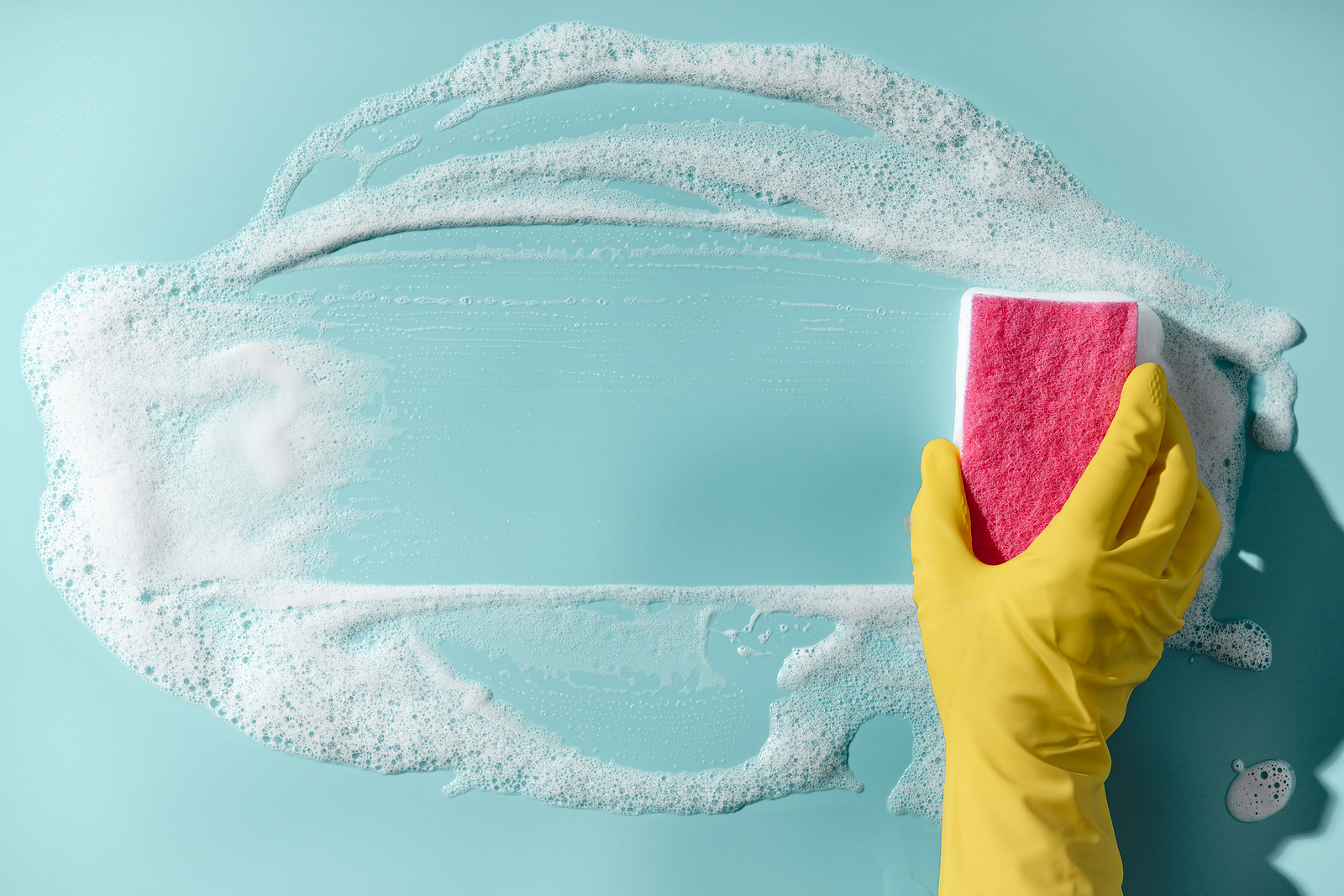COVID-19 has made most of us hyper-aware of viruses. We have, in fact, received a crash course on virology, learning how long the critters live on certain surfaces, how they enter and leave our bodies, and, most importantly, how to kill them.
A virus is but one of the many germs we interact with on a daily basis. Germs are everywhere–in the air, water, soil, and even in food. These include viruses, but also bacteria, fungi, and other gross stuff that can infect us.
These critters get into our homes through a number of different routes:
- Open doors
- Open windows
- On our clothing and skin
- Sneezes, coughs, breathing, and speaking
Most researchers of germs in the home agree that the dirtiest room is the kitchen and the dirtiest object in it is the dish sponge.
And, no, the toilet isn’t the most germ-ridden feature of your bathroom, your toothbrush holder is.
Some other items in our homes, however, seem so innocent that we rarely, if ever, clean them. These areas are worthy of extra attention when cleaning.
How did they figure this one out?
The folks at tapwarehouse.com conducted a British study to learn which items in the home collect a lot of germs.
“… we swabbed 30 items in total from three different households. This included a selection from the kitchen, bathroom as well as electronic, family and dog items,” according to Tom Drake, on the company’s website.
They swabbed items from:
- Retired household with a dog
- Young couple household
- Family household
The swabs were then left alone for five days so the “icky stuff” could multiply. Finally, they were given to Amanda Jones, Ph.D., Associate Professor and microbial researcher at Northumbria University for analysis.
Surprisingly germ-ridden stuff in the average home
Got a laptop or desktop computer? If so, you may never look at it the same way when you learn what Dr. Jones did.
The keyboard is dirtier than your bathroom
Most contain a veritable cocktail of nasty germs, such as “… staphylococci [aka “staph”], streptococci and some airborne bacteria such as micrococci,” Dr. Jones tells Drake.
The most common staph infection is to the skin but it can also cause infection of the bloodstream, leading to sepsis, bone infections, an infection of the heart, food poisoning, pneumonia, and more, according to the experts at medlineplus.gov.
Strep infections include “… pharyngitis, pneumonia, wound and skin infections, sepsis, and endocarditis,” notes Larry M. Bush, MD, FACP, Charles E. Schmidt College of Medicine, Florida Atlantic University at merckmanuals.com.
Which household had the germiest computer? “…the younger couple that was working from home,” according to Drake.
Do yourself a favor and disinfect your keyboard at least once a week. If a number of people are using the keyboard, consider cleaning it more often.
Use a solution that contains 70% alcohol to wipe it down thoroughly. And, no, a higher percentage of alcohol isn’t better. In fact, they evaporate too quickly to sanitize.
Overall, “Disinfectants don’t harm your keyboard,” note the experts at webmd.com.
Where’s the clicker?
Be honest: Have you ever cleaned your tv remote? Think of how many family members touch the device on a daily basis.
This is why this particular study nominated it as the second dirtiest electronic item. The most common germs found on it include staph and strep.
Use alcohol wipes or a microfiber cloth moistened with alcohol to wipe it down every day.
The retired household with a dog had the dirtiest tv remote but the household with a family was very close behind.
This one is really gross
“… the bathroom tap is often the first thing people touch after they go to the toilet,” Drake said. He also notes that it’s the germiest part of the average household bathroom. Dr. Jones adds that the nasties found on bathroom taps include E. coli “… and other fecal types of bacteria.”
Drake adds that we are literally washing our hands “… with poo … .”
Since that’s the last thing we want to do, we are committed to cleaning our taps far more often and leaving disinfecting wipes near them. This way, we can wipe them down after each use.
While Drake cautions against using bleach or other corrosive disinfectants, others recommend using Lysol, Microban 24 Sanitizing Spray, Comet Cleaner with Bleach, and even alcohol. See the U.S. Environmental Protection Agency’s website for a list of disinfectants.
Overall, the study found that homes with dogs and kids are germier.
No surprise there.


